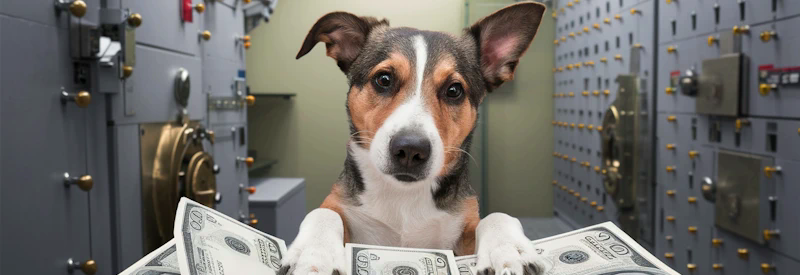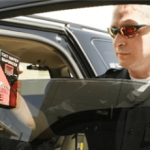Currency Sniffing Dogs?
With their extraordinary sense of smell—up to 100,000 times more sensitive than a human’s—trained canines can detect explosives in a variety of environments, from crowded public spaces to vehicles and packages. A bomb detection dog undergoes rigorous training to identify specific chemical compounds used in explosives. Their training includes exposure to various scents, practice in simulated environments, and collaboration with handlers to efficiently search and signal the presence of potential threats. The presence of bomb detection dogs enhances security at airports, sporting events, political gatherings, and high-profile venues. Their ability to screen large areas quickly makes them an effective tool for preventing incidents and protecting lives.
By contrast, dogs trained to detect the smell of currency serve almost no legitimate public safety purpose, especially when these canines are utilized to monitor domestic flights or to monitor vehicles on the highway. These dogs are trained to raise revenue, and their handlers will repeatedly claim that their canines are "drug detection dogs."
It is completely legal to travel with currency in the United States. Police dog handlers will repeatedly claim a dog had a "positive hit" on currency because the cash must have been in recent close proximity to illicit drugs. This is nothing more than a lie if the dog is trained to detect the distinct odor of currency, but police departments frequently refuse to turn over a certified drug dog's training records.
Currency sniffing dogs are widely utilized and receive a fair amount of reporting. U.S. Customs and Border Protection reports that, "Dulles CBP Officers Seize Over $167K in Unreported Currency from Six Separate Travelers." As that news media statement explains:
U.S. Customs and Border Protection officers seized more than $167,000 in unreported currency during six separate seizures in February at Washington Dulles International Airport.
. . . .
There is no limit to how much currency or other monetary instruments travelers may bring to or take out of the United States. However, federal law [31 USC 5316] requires travelers to report all currency of $10,000 or greater to a CBP officer and complete U.S. Treasury Department Report of International Transportation of Currency or Monetary Instruments [FINCEN 105].
The Department of Public Safety in Minnesota reports:
Over the past year, K-9 Bia and her handler Special Agent Brad Rezny have located currency in shopping bags underneath basement steps, tucked behind a wall-mounted TV and hidden under all kinds of furniture.
Bia — a 2-year-old German shorthaired pointer trained to locate U.S. currency — marked her first anniversary with our Alcohol and Gambling Enforcement (AGE) division by becoming the first currency K-9 in the nation certified by the North American Police Work Dog Association (NAPWDA). NAPWDA is one of the highest standards in the country, requiring the K-9 and handler team to find 12 sets of currency in a variety of environments, from buildings to luggage to vehicles.
Bia was imported from Hungary and can sniff out cash hidden in homes, buildings, vehicles or buried in a yard. She spent three months pre-training with the Minnesota State Patrol to recognize currency odors and build her search skills.
Canada uses money sniffing dogs, according to the American Kennel Club. See, "Meet the Currency Detector Dog Who Has Made $2.4M For The Canadian Government." Japan has also introduced currency sniffing dogs, according to The Asahi Shimbun, "Japan introduces dogs to sniff out wads of hidden cash at airports." A forensic science magazine further reports that cash detection dogs are used in Australia, and these dogs are also trained to detect electronic devices, including flash drives, stating that "the Australian Federal Police’s detection dogs have detected cash hidden under stairs, sim cards concealed in shoes and USBs buried in eskies full of food."






